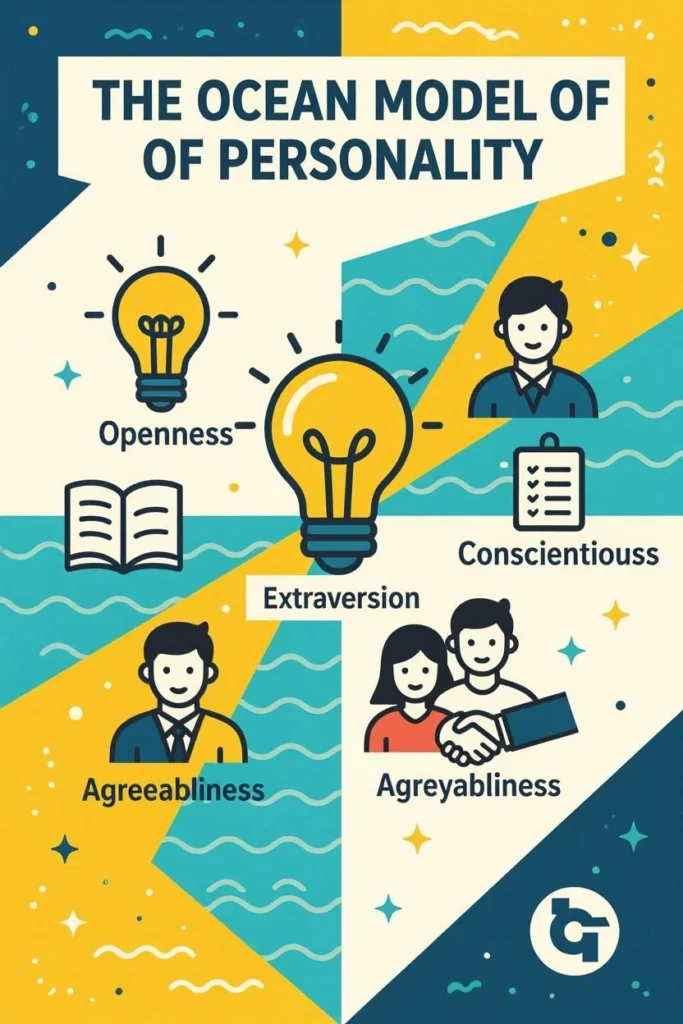While your core personality traits are relatively stable, the way you express them—your character, your habits, and your social skills—is incredibly malleable. Improving your personality isn’t about becoming someone else; it’s about becoming a more effective, confident, and likable version of yourself.
This isn’t about grand, sweeping changes that feel overwhelming. It’s about adopting small, consistent, and practical habits that shape how you interact with the world and how you feel internally. True personality development is an “inside-out” process. It starts with your mindset and ripples outward to your actions and relationships.
This guide provides 15 actionable ways you can start improving your personality today. Each tip is broken down into why it’s important and the simple, first steps you can take.

Part 1: Improving Your Inner World (The Foundation)

Lasting change always starts from within. Before you can effectively connect with others, you must first build a strong inner foundation.
1. Become a Lifelong Learner
- What it is: Committing to continuous learning and staying curious about the world.
- Why it’s important: Interesting people are interested people. When you are constantly learning, you have more to talk about, you can connect with more people on more topics, and you develop a more flexible, open mind. A growth mindset—the belief that you can always learn and improve—is the engine of all personal development.
- Actionable Steps:
- Read 10 pages of a non-fiction book every day.
- Listen to one educational podcast during your commute or workout each week.
- When you hear a word or concept you don’t understand, look it up immediately.
2. Practice Active Listening
- What it is: The skill of listening to fully understand the speaker’s message, rather than just waiting for your turn to talk.
- Why it’s important: In a world of distraction, giving someone your full, undivided attention is a rare and powerful gift. It makes people feel valued, respected, and understood. This is the fastest way to build trust and rapport in any relationship, personal or professional.
- Actionable Steps:
- In your next conversation, put your phone away and out of sight.
- Paraphrase what the other person said (“So, what I’m hearing you say is…”) to confirm you understood correctly.
- Ask clarifying, open-ended questions to encourage them to share more.
3. Build Competence-Based Confidence
- What it is: Developing genuine self-confidence that comes from real-world skill and achievement, not just positive affirmations.
- Why it’s important: True confidence isn’t about pretending you’re great at everything. It’s the quiet knowledge that you are capable of learning, adapting, and figuring things out. This kind of confidence is built on a foundation of competence.
- Actionable Steps:
- Choose one small, useful skill you’ve always wanted to learn (e.g., how to cook a specific meal, how to use a new software feature). Dedicate 30 minutes a day to it for one week.
- Set and achieve one tiny, winnable goal each day.
- Practice a “power pose” for two minutes before a stressful situation. Stand tall, with your shoulders back—your body language can influence your mindset.
4. Develop a Positive Outlook
- What it is: Training your brain to focus on opportunities and solutions rather than problems and complaints.
- Why it’s important: Your mindset is a filter through which you see the world. A positive outlook doesn’t mean ignoring reality; it means looking for the good and believing in your ability to handle the bad. This builds resilience and makes you a more enjoyable person to be around.
- Actionable Steps:
- Start a gratitude journal. Every night before bed, write down three specific things that went well that day and why.
- Practice reframing. When you catch a negative thought (“This traffic is a disaster”), challenge yourself to find a positive angle (“This is a great chance to finish my podcast”).
- Limit your exposure to negative news and complaining people.
5. Intentionally Step Out of Your Comfort Zone
- What it is: Deliberately doing things that are slightly uncomfortable or unfamiliar.
- Why it’s important: Your personality grows at the edge of your comfort zone. Staying in a comfortable bubble leads to stagnation. Consistently facing small, manageable challenges builds courage, resilience, and adaptability.
- Actionable Steps:
- Try one new food or restaurant this month.
- Take a different route to work or the grocery store.
- Start a conversation with a barista or cashier instead of just ordering.
Part 2: Enhancing Your Social Skills (How You Connect)

How you interact with others is a huge component of how your personality is perceived. These skills can all be learned and practiced.
6. Be Genuinely Interested in Others
- What it is: Shifting your focus in a conversation from “How can I be interesting?” to “How can I be interested?”
- Why it’s important: As Dale Carnegie famously taught, people are a million times more interested in themselves than they are in you. When you show genuine curiosity about someone else’s life, passions, and problems, you make them feel important and create an instant connection.
- Actionable Steps:
- Make an effort to remember and use people’s names.
- Ask thoughtful, open-ended questions that can’t be answered with “yes” or “no.”
- Challenge yourself to go an entire conversation without talking about yourself unless asked directly.
7. Develop a Good Sense of Humor
- What it is: The ability to find levity in situations and, most importantly, to laugh at yourself.
- Why it’s important: A sense of humor shows that you are relaxed, confident, and don’t take yourself too seriously. It defuses tension, makes you more approachable, and is a key component of resilience.
- Actionable Steps:
- The next time you make a small, harmless mistake, laugh about it instead of getting frustrated.
- Watch stand-up comedy or read humorous books to train your brain to see the funny side of life.
- Share a funny, appropriate story or observation with a friend or colleague.
8. Practice Empathy
- What it is: The ability to understand and share the feelings of another person.
- Why it’s important: Empathy is the antidote to judgment and the foundation of all meaningful relationships. It allows you to connect with people on a deeper, more human level and navigate disagreements with compassion.
- Actionable Steps:
- Before you judge someone’s actions, pause and ask yourself: “What might they be going through that would make them act this way?”
- When a friend is sharing a problem, resist the urge to immediately offer solutions. First, just validate their feelings by saying, “That sounds incredibly difficult.”
9. Be a Good Conversationalist
- What it is: The skill of engaging in balanced, interesting, and respectful dialogue.
- Why it’s important: Good conversationalists are seen as charismatic and intelligent. The ability to hold a good conversation is crucial for networking, dating, and building any kind of relationship.
- Actionable Steps:
- Read or listen to the news so you have a few current events to talk about.
- Avoid the “conversational narcissism” of constantly one-upping someone’s story. If they tell you about their trip to the beach, ask them more about it instead of immediately talking about your own beach trip.
- Know when to end a conversation gracefully.
10. Offer Sincere Compliments
- What it is: The habit of noticing and verbally appreciating the good in others.
- Why it’s important: A genuine compliment is a small act that can have a huge impact. It makes the other person feel good, and it trains your own brain to look for the positive in people.
- Actionable Steps:
- Make your compliments specific. “You did a great job presenting the data in that meeting; your slides were so clear” is far more powerful than “Good job.”
- Compliment people on their character or effort, not just their appearance or results.
These skills are foundational to all human connection. Dive deeper with our Guide to Effective Communication & Healthy Relationships.
Part 3: Refining Your Outer Self (How You Present)

While the inner world is key, how you present yourself to the world also shapes how people perceive and interact with you.
11. Work on Your Body Language
- What it is: Being conscious of the non-verbal signals you are sending.
- Why it’s important: Your posture, eye contact, and gestures communicate your level of confidence and engagement before you even speak a word.
- Actionable Steps:
- Stand up straight with your shoulders back. This simple act can make you feel and appear more confident.
- When you shake someone’s hand, make it firm and look them in the eye.
- Avoid crossing your arms, which can signal that you are closed off or defensive.
12. Be Punctual and Reliable
- What it is: Consistently showing up on time and doing what you say you will do.
- Why it’s important: Punctuality and reliability are powerful signals of respect for other people’s time. They are foundational traits of a conscientious and trustworthy character.
- Actionable Steps:
- Set your alarms and calendar reminders 10 minutes earlier than you think you need.
- Write down every commitment. Don’t rely on your memory.
- If you are going to be late, communicate it as early as possible.
13. Develop Your Own Style
- What it is: Intentionally choosing clothes and a grooming style that make you feel authentic and confident.
- Why it’s important: Your appearance is a form of self-expression. When you feel good about how you look, it naturally boosts your confidence and changes how you carry yourself.
- Actionable Steps:
- Go through your closet and get rid of anything that doesn’t fit well or make you feel good.
- Identify one person whose style you admire and analyze what makes it work.
- Invest in one high-quality item that makes you feel like the best version of yourself.
14. Be Well-Spoken
- What it is: Speaking clearly, concisely, and with confidence.
- Why it’s important: How you speak is often perceived as a reflection of how you think. Being well-spoken makes you sound more intelligent, credible, and authoritative.
- Actionable Steps:
- Slow down. Speaking too quickly is often a sign of nervousness.
- Practice pausing instead of using filler words like “um,” “ah,” and “like.” A moment of silence is more powerful than a filler word.
- Expand your vocabulary by reading and looking up new words.
15. Be Kind and Respectful to Everyone
- What it is: The simple but profound habit of treating every person you interact with, regardless of their status or position, with courtesy and respect.
- Why it’s important: This is perhaps the ultimate indicator of a strong character. How you treat a waiter, a janitor, or a customer service representative says more about your personality than how you treat your CEO. It’s a reflection of your inner security and empathy.
- Actionable Steps:
- Say “please” and “thank you” consistently.
- Hold the door open for the person behind you.
- When you have a complaint, address the issue without attacking the person.
These practical tips are powerful ways to apply the concepts we explore in our Ultimate Guide to Personality Development.
Small Habits, Big Changes
Improving your personality is a marathon, not a sprint. It’s the sum of hundreds of small, conscious choices you make every day. Don’t try to implement all 15 of these tips at once. That’s a recipe for overwhelm.
Instead, choose one or two that resonate with you the most. The ones that make you think, “I could really work on that.”
Practice them for the next 30 days. Focus on consistency, not perfection. Once they start to feel like a natural part of who you are, come back to this list and pick another one. That is the path to real, lasting change.
Which of these 15 tips will you start practicing this week? Share your choice in the comments!


